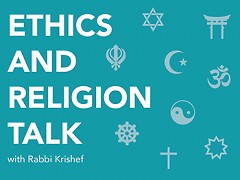The Reverend Colleen Squires, minister at All Souls Community Church of West Michigan, a Unitarian Universalist Congregation, responds:
“In Unitarian Universalism a person can have a great deal of influence over how their death can occur and what their memorial service will look and feel like. Choosing to stop treatment or when to enter hospice care are decisions that are entirely in the hands of the patient. What is said and who is invited to the memorial service is also up to the person or their family. Generally speaking we often choose to have a memorial service rather than a funeral and most of us lean towards cremation but not all of us. So much of our faith is individualized and we must respect the wishes of the person reaching the end of their life.”
Dr Sahibzada, the Director of Islamic Center and Imam of the Mosque of Grand Rapids, responds:
“Death is a reality which is bound to end the life of a living person. Set prayers, traditions and rules, etc., under faith are to turn someone’s life righteous or otherwise. As a firm believer in God, I’d love to plan a peaceful death. It happens through obeying commandments of God, prayers, and glorifying and shaping of life in accordance with discipline set by Him.”
Father Kevin Niehoff, O.P., a Dominican priest who serves as Adjutant Judicial Vicar, Diocese of Grand Rapids, responds:
“What does death look like? In his work, ‘The Imitation of Christ,’ Thomas a Kempis, writes, ‘every action of yours, every thought, should be those of one who expects to die before the day is out. Death would have no great terrors for you if you had a quiet conscience… then why not keep clear of sin instead of running away from death? If you aren’t fit to face death today, it’s very unlikely you will be tomorrow…’ (Catechism of the Catholic Church, p. 264).
“Whenever I administer the sacrament of anointing of the sick (improperly referred to as last rites), I ask that the individual have as many family members present as possible. We all pray together, lay on hands, and I administer the sacrament. Death is often a sad moment for those who survive but the Catholic Church provides beautiful prayers and liturgies to assist in not only preparation for death but also the celebration of the new and eternal life into which the individual is born.”
Rev. Ray Lanning, a retired minister of the Reformed Presbyterian Church of North America, responds:
“One of the major changes in Christian practice made by the Reformation was the abolition of elaborate rites and ceremonies connected with the burial of the dead. Funerals were unknown among the first generations of Reformed Christians: ‘When any person departeth this life, let the dead body, upon the day of burial, be decently attended from the house to the place appointed for publick burial, and there immediately interred, without any ceremony’ (Westminster Directory for Worship, 1645). There is no biblical or church requirement for a funeral service of any kind.
“Today most Reformed and Presbyterian church members will be accorded a funeral service when they die. It is left entirely to the family of the deceased to decide what will be said, sung, or done. At such times it is a great help if the deceased person had the wisdom to leave behind written instructions as to his or her wishes. Otherwise, you leave the door open for strife among brethren, at a time when feelings are running high.
“So by all means, make plans for ‘what you want your death to look like.’ Keep in mind that there are ‘general rules of the Word’ that still apply, such as, ‘Whatsoever ye do, do all to the glory of God’ (I Corinthians 10:31). A funeral service should be an occasion for giving thanks to God and hearing His Word; and not merely a celebration of the life and achievements of the deceased.”
My response:
The question is about what the dying want their death to look like, not their funeral. The question also presupposes that the dying person has a particular faith. So the question really is whether the deathbed prayers of our faith are are in some way required in order for the soul to experience the quickest possible entry to heaven.
While there are some Orthodox Jewish traditions that believe such prayers hasten the redemption of the soul, the more common belief is that deathbed prayers are intended to ease the dying process by settling the dying person’s mind or comfort the family, but do not change the person’s fate once dead.
This column answers questions of Ethics and Religion by submitting them to a multi-faith panel of spiritual leaders in the Grand Rapids area. We’d love to hear about the ordinary ethical questions that come up on the course of your day as well as any questions of religion that you’ve wondered about. Tell us how you resolved an ethical dilemma and see how members of the Ethics and Religion Talk panel would have handled the same situation. Please send your questions to [email protected].
The Rapidian, a program of the 501(c)3 nonprofit Community Media Center, relies on the community’s support to help cover the cost of training reporters and publishing content.
We need your help.
If each of our readers and content creators who values this community platform help support its creation and maintenance, The Rapidian can continue to educate and facilitate a conversation around issues for years to come.
Please support The Rapidian and make a contribution today.
